THE 3rd CAJG GOES VIRTUAL DUE TO THE CORONAVIRUS SPREAD!

- In light of the health safety recommendations everywhere, we will deliver our 3rdCAJG as a digital event, in lieu of an in-person event.
- The 3rd CAJG was initially planned to be held in-person in Sousse, Tunisia.
- The 3rd CAJG will be one of the largest virtual scientific conferences in Africa and the Middle East. It is scheduled from 2–5 November 2020.
- We have received 1160+ abstracts from 88 countries and we look forward to accommodate over a hundred hours of virtual content.
- Please register at the conference either to present online your paper(s) or just to attend the online sessions. Please read carefully about the registration and payment terms.
- The deadline for online registration and payment is 10 October 2020. After this date, the online registration will be closed in order to start preparing the final program.
- Now the 3rd CAJG is over, discover the Award-Winning Authors!
AIMS & SCOPE

The Arabian Journal of Geosciences (AJG)
is a Springer journal publishing original articles on the full range of Earth sciences in partnership with the Saudi
Society for Geosciences. The journal focuses on, but is not limited to, research themes which have regional
significance for the Middle East, the Euro-Mediterranean, Africa, Asia and some other regions of the world.
The journal receives on average 3500 submissions a year and accepts around 800 papers for publication in its 24
annual issues (acceptance rate around 20%). It benefits from the participation of an editorial team of 15 topical Chief Editors and 100 international
Associate Editors who generously help in evaluating and selecting the best papers.

In 2008, Prof. Abdullah Al-Amri, in close partnership with Springer, founded the Arabian Journal of Geosciences (AJGS).
In 2018, the journal celebrated its 10th anniversary. To mark the event, the founder and Editor-in-Chief of
the AJGS organized the 1st Conference of the Arabian Journal of Geosciences (CAJG)
in close collaboration with Springer on 12–15 November 2018. The conference was an occasion to endorse
the journal’s long-held reputation and brought together 450 authors from 70 countries, who work in the wide-ranging fields of Earth sciences.
The dynamic four-day conference in a stimulating environment in Hammamet, Tunisia provided attendees with opportunities to share their
latest unpublished findings and learn about the latest geosciences studies. The event also allowed attendees to meet and talk
to the journal’s editors and reviewers. Three field trips were organized alongside the conference and many participants enjoyed the
wonders of the geology of Tunisia. More details about the 1st CAJG are shown on its
website.
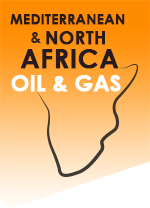
In a continuation of the successful 1st CAJG and 2nd CAJG, this year’s conference aims to bring geoscientists from all over the world to present and discuss their most recent findings. The 3rd CAJG will continue to publish the newest findings in its proceedings and some special issues by Springer, with a clear mission to drive greater North-South (Europe-Africa) scientific cooperation and to open doors to new and enriching collaborations with geoscientists based in Asia and the Americas. Research studies from the wide-ranging fields of Earth sciences can be submitted for evaluation by the Conference Scientific Committee. In particular, the 3rd CAJG will devote a special session to studies focusing on unravelling the undiscovered oil and gas resources in the Mediterranean and North Africa. Many international experts will be invited to take part in the discussion, in particular we are expecting a massive participation of researchers from North Africa Research Group (NARG) of Manchester University (UK) and other scientists based in North Africa.
CONFERENCE TRACKS
The scientific committee of the 3rd CAJG invites research papers on all cross-cutting themes of Earth sciences, with a main focus on the following 15 conference tracks:
- Track 1. Atmospheric Sciences, Meteorology, Climatology, Oceanography
- Track 2. Biogeochemistry, Geobiology, Geoecology, Geoagronomy
- Track 3. Earthquake Seismology and Geodesy
- Track 4. Environmental Earth Sciences
- Track 5. Exploration & Theoretical Geophysics, Seismic & Well Logging Methods, Mathematical Geosciences
- Track 6. Geo-Informatics and Remote Sensing
- Track 7. Geochemistry, Mineralogy, Petrology, Volcanology
- Track 8. Geological Engineering, Geotechnical Engineering
- Track 9. Geomorphology, Geography, Soil Science, Glaciology, Geoarchaeology, Geoheritage
- Track 10. Hydrology, Hydrogeology, Hydrochemistry
- Track 11. Marine Geosciences, Historical Geology, Paleoceanography, Paleoclimatology
- Track 12. Numerical and Analytical Methods in Mining Sciences and Geomechanics
- Track 13. Petroleum and Energy Engineering, Petroleum Geochemistry
- Track 14. Sedimentology, Stratigraphy, Paleontology, Geochronology
- Track 15. Structural Geology, Tectonics and Geodynamics, Petroleum Geology
- Track 16. Special Session on Petroleum Systems in North Africa by NARG
ABOUT CAJG
PARTNERED JOURNALS & BOOK SERIES
-
 Arabian Journal of Geosciences (Impact Factor = 0.8)
Arabian Journal of Geosciences (Impact Factor = 0.8) -
 Journal of Soils and Sediments (Impact Factor = 2.6)
Journal of Soils and Sediments (Impact Factor = 2.6) -
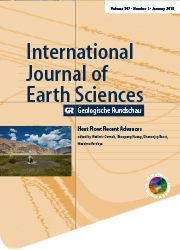 International Journal of Earth Sciences (Impact Factor = 2.2)
International Journal of Earth Sciences (Impact Factor = 2.2) -
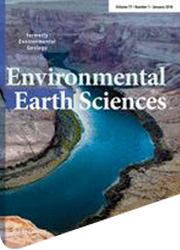 Environmental Earth Sciences
Environmental Earth Sciences
(Impact Factor = 1.4) -
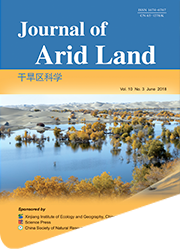 Journal of Arid Land
Journal of Arid Land
(Impact Factor = 1.4) -
 Journal of Petroleum Exploration and Production Technology (indexed in ISI's ESCI)
Journal of Petroleum Exploration and Production Technology (indexed in ISI's ESCI) -
 Euro-Mediterranean Journal for Environmental Integration (indexed in ISI's ESCI)
Euro-Mediterranean Journal for Environmental Integration (indexed in ISI's ESCI) -
 Earth Systems and Environment (indexed in Scopus)
Earth Systems and Environment (indexed in Scopus) -
 Applied Water Science
Applied Water Science
(indexed in ISI's ESCI) -
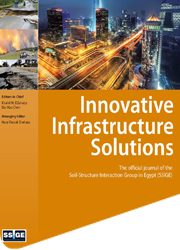 Innovative Infrastructure Solutions
Innovative Infrastructure Solutions
(indexed in ISI's ESCI) -
 Mediterranean Geoscience Reviews
Mediterranean Geoscience Reviews -
 SN Applied Sciences
SN Applied Sciences -
 Advances in Science, Technology and Innovation
Advances in Science, Technology and Innovation














